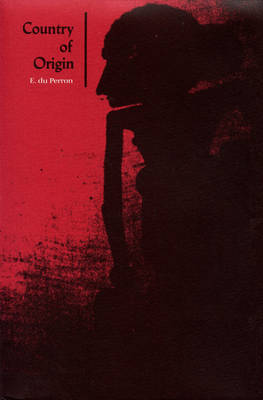
- Afhalen na 1 uur in een winkel met voorraad
- Gratis thuislevering in België vanaf € 30
- Ruim aanbod met 7 miljoen producten
- Afhalen na 1 uur in een winkel met voorraad
- Gratis thuislevering in België vanaf € 30
- Ruim aanbod met 7 miljoen producten
Zoeken
Omschrijving
Second only to Havelaar as an important Dutch novel on Indonesia, Country of Origin is largely autobiographical. Born in the Indies in 1899, Edgar du Perron spent his youth in Java and much of his adulthood in Europe. He was the co-founder of the magazine Forum, and he partially supported several other avant-garde publications. He died in the Netherlands in 1940, on the day the Dutch army surrendered to German invaders. Encompassing many kinds of classes of people in their own environment, Country of Origin teems with the atmosphere of the tropics, the colors of the landscape, and the sights and smells of native foods. The chapters on du Perron's youth in Java evoke the colonial scene in great detail as they relate his education, early friendship, and first love affairs. The European chapters deal primarily with intellectual life in the 1930s in Paris and the Netherlands. They are of particular interest because of the author's friendship with writers such as André Malraux and Pascal Pia, both of whom appear in the novel.
Specificaties
Betrokkenen
- Auteur(s):
- Uitgeverij:
Inhoud
- Aantal bladzijden:
- 464
- Taal:
- Engels
- Reeks:
Eigenschappen
- Productcode (EAN):
- 9780870234293
- Verschijningsdatum:
- 7/06/1984
- Uitvoering:
- Hardcover
- Formaat:
- Genaaid

Alleen bij Standaard Boekhandel
+ 124 punten op je klantenkaart van Standaard Boekhandel
Beoordelingen
We publiceren alleen reviews die voldoen aan de voorwaarden voor reviews. Bekijk onze voorwaarden voor reviews.











